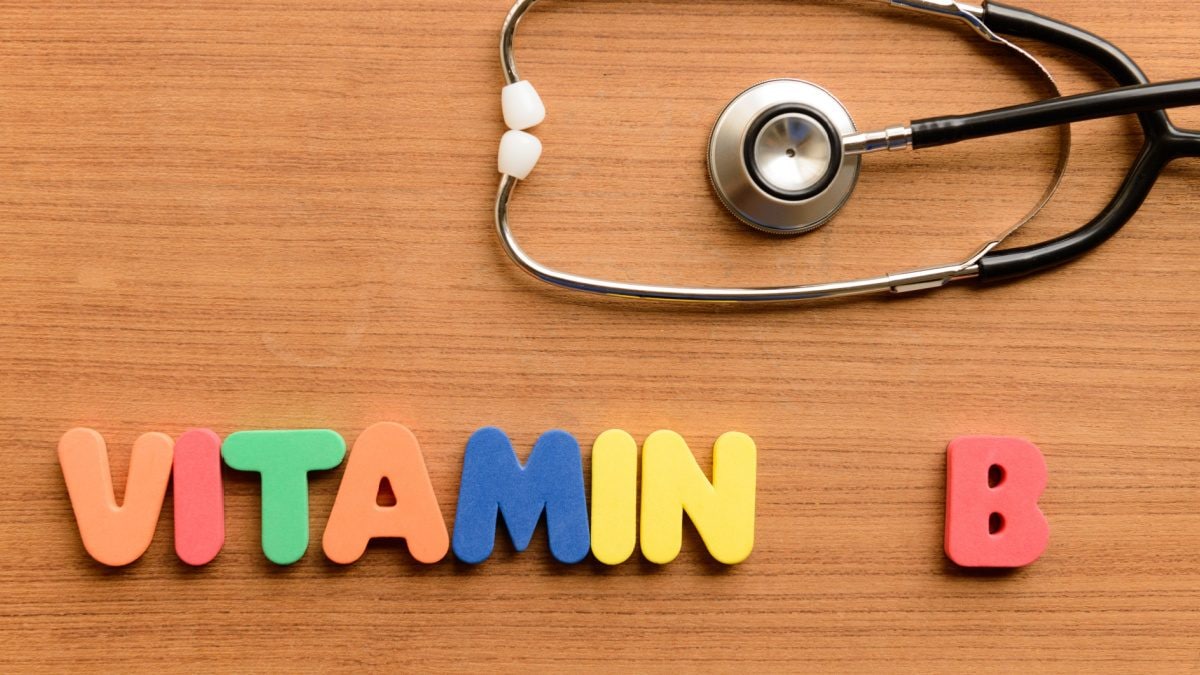
Different types of Vitamin B are essential for various bodily functions, including energy metabolism, nervous health system, and the production of red blood cells (Image: Shutterstock)
From Vitamin B1 (Thiamine) to Vitamin B12 (Cobalamin), find out everything about the 6 different types of Vitamin B
Vitamin B, also known as the Vitamin B complex, comprises a group of essential nutrients that are vital for maintaining optimal health and well-being. Each type of Vitamin B offers unique benefits for various bodily functions, including energy metabolism, nervous system health, and red blood cell production. Ensuring a balanced diet that includes foods rich in Vitamin B, such as whole grains, legumes, leafy green vegetables, dairy products, lean meats, and eggs, can help meet the body’s Vitamin B requirements.
However, in certain cases, supplementation may be necessary, particularly for individuals with specific dietary restrictions or medical conditions. Seeking guidance from a healthcare professional will provide personalized recommendations on the appropriate intake of vitamin B supplements. Here, we explore the 6 different types of Vitamin B, from Vitamin B1 (Thiamine) to Vitamin B12 (Cobalamin), and their specific health benefits:
Vitamin B1, also known as Thiamine, plays a critical role in converting carbohydrates into energy. It supports the proper functioning of the nervous system, muscles, and heart. Thiamine also promotes healthy skin, hair, and eyes, and contributes to improved brain function and memory enhancement.
Vitamin B2, or Riboflavin, is essential for maintaining healthy skin and eyes. It supports the production of red blood cells and promotes optimal energy metabolism. Riboflavin also acts as an antioxidant, protecting the body against oxidative stress. Additionally, it aids in the metabolism of other vitamins, such as B6 and folate.
Vitamin B3, commonly referred to as Niacin, participates in energy production and cellular metabolism. It converts food into energy and supports the digestive system. Niacin also plays a crucial role in maintaining cardiovascular health by promoting healthy cholesterol levels. It contributes to proper brain function and can help improve cognitive performance.
Vitamin B5, or Pantothenic Acid, is necessary for the synthesis of various substances in the body, including fats, proteins, and carbohydrates. It plays a crucial role in energy metabolism and supports the production of adrenal hormones. Pantothenic acid also aids in maintaining healthy skin and promotes wound healing.
Vitamin B6, also known as Pyridoxine, participates in over 100 enzymatic reactions in the body. It plays a vital role in the metabolism of amino acids, which are
Denial of responsibility! SamacharCentrl is an automatic aggregator of Global media. In each content, the hyperlink to the primary source is specified. All trademarks belong to their rightful owners, and all materials to their authors. For any complaint, please reach us at – [email protected]. We will take necessary action within 24 hours.

Hemalata Nehete celebrates the art of living well, exploring topics ranging from travel and fashion to home decor and culinary delights, offering inspiration for readers seeking a balanced and enjoyable lifestyle.
Denial of responsibility! Samachar Central is an automatic aggregator of Global media. In each content, the hyperlink to the primary source is specified. All trademarks belong to their rightful owners, and all materials to their authors. For any complaint, please reach us at – [email protected]. We will take necessary action within 24 hours.

